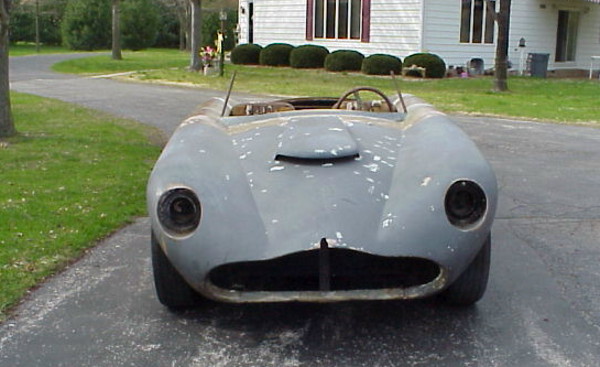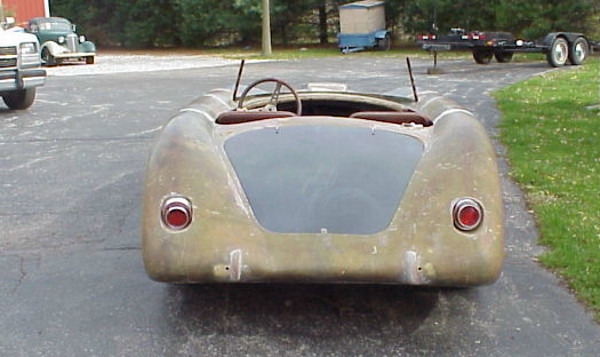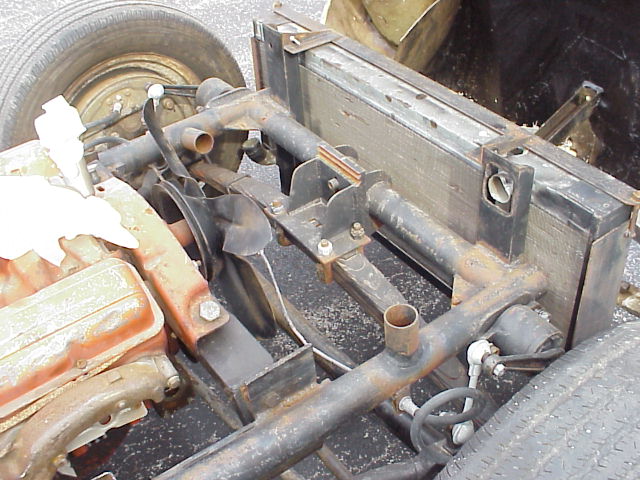| More from Tim:
"I have known of Bob Sorrell
since I bought his personal car that Mark Brinker owns. Then I started
doing research on him since he was a excellent metal man and did a lot
of alloy bodies for drag racers and Micky Thompsons record car. I
have a lot of Bobs small air hammers and dies.I am allways interested
in his work and think he deserves a place in automotive history in California."
(7-17-09)
From Darrell Wilhelm:
"For Tim's car, I could
identify a late buggy-spring era (1939-48) Ford or Mercury tube-axle front
suspension and brakes (identified by general appearance and the hydraulic
brake hoses), lever-action shock absorbers that could either be like those
used on British cars from the 1930s to the end of MGB production or could
be from prewar American cars such as Packards, 1958-up Chevrolet Impala
taillights, and a hood scoop like those sold by Moon, Honest Charley, J.C.
Whitney, Bell and other speed shops of the fiberglass-special era.
The windshield is also
reminiscent of the Arnolt-Bristol in terms of the shape of its posts, although
the MGA's, A.C. Ace/Shelby Cobra's and Jaguar XK150 roadster's are similar
if I recall correctly. That style of windshield could also have been built
quite easily, by way of obtaining steel or aluminum channel stock and rubber
weatherstripping (or bicycle inner tubes) and fitting either a salvaged
windshield of whatever shape would fit, flat glass, or a bespoke Plexiglas
windshield to it, depending on how much expendable cash the builder had
and on the style of the frame.
It also appears to have
had nerf bars or bumperettes of some kind on the rear end at one time,
and it appears to have seats from a small imported two-door sedan or sports
car (probably Volkswagen, Porsche 356, Fiat, Morris Minor, MGA or Renault
Caravelle, judging from the size and shape of the backrest tops). I could
probably get more information on other parts of the car and/or other unique
features if I were able to see more pictures. Perhaps Tim could send them
along?
This information may not
lead directly to the exact identity of Tim's car, but the specific types
of parts (readily available and inexpensive during the 1950s and 1960s)
may tell something about the car or its original builder, and although
I am not an expert on Sorrells (to say the least!), I could at least pin
down an approximate era of completion and perhaps some details on its construction
if I were to be able to see more pictures." |


